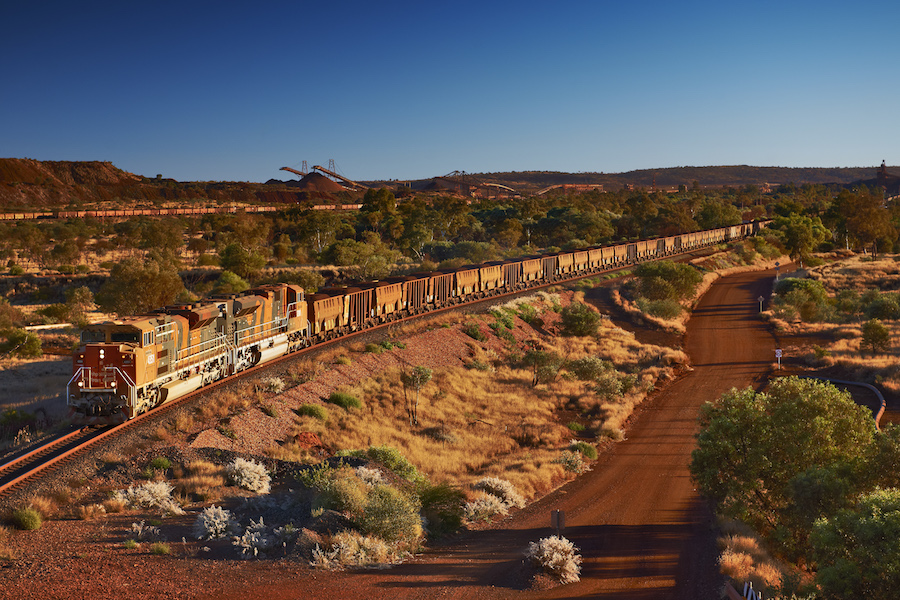BHP union says work schedules too punishing for train drivers

The work schedule BHP Group has imposed on train drivers at its iron ore operations in Western Australia will damage their mental health and that of their family members, said a union representing the group.
The country’s miners have been under pressure to ship out as much iron ore as they can while prices are close to record highs. BHP announced the first production at its $3.6 billion South Flank operations earlier this month.
The world’s biggest miner told train drivers that they will be required to work a two-week on, one-week off roster, compared to the typical two-week on, two-week off roster, the state CFMEU Mining & Energy Division said in a statement.
In Australia, mine workers often live in cities and fly in and out (FIFO) of remote mine sites, a commute that can take anywhere from several hours to a day, including connections.
“Last year FIFO train drivers accepted that times were unusual, and they copped extended periods away from their families,” said Greg Busson, the CFMEU division’s secretary.
“But it came at a real cost. Mental health problems have been cropping up and have been poorly handled by BHP. Drivers found they were really only getting five days to see their families given they are required to spend full days travelling to and from site,” he said in a statement.
BHP has indicated the roster will be compulsory in two three-month blocks up until at least August 2022, the union said.
BHP blamed a skills shortage for what it said was a temporary measure and said it was recruiting more drivers, after announcing traineeships for 200 drivers last week.
“Our train drivers are an important part of our business,” it said.
Western Australia has suffered a squeeze on labour as several large iron ore projects are under construction at once, exacerbated by snap closures of state borders and covid-19 restrictions that have hampered recruitment from overseas.
Fortescue blamed in part a skill shortage when it revised up for a second time costs at its Iron Bridge project in Western Australia last week.
(By Melanie Burton; Editing by Ana Nicolaci da Costa)
{{ commodity.name }}
{{ post.title }}
{{ post.date }}




Comments